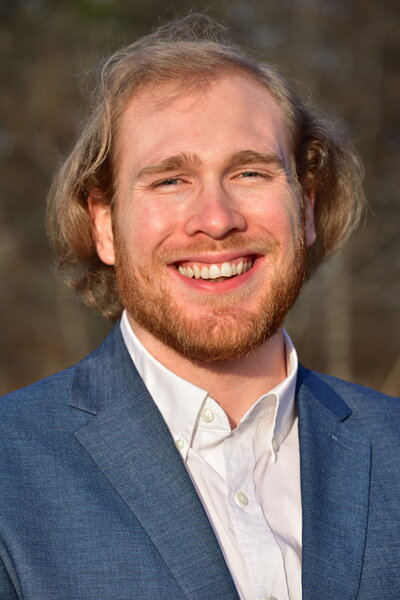
Samuel James, Solutions Engineer at Axim Geospatial

What do you do on a typical day at Axim Geospatial?
It’s hard to define a typical day at Axim. I support more than 25 clients and often work on multiple client projects within a day. Our clients range from state or local government entities to international NGOs and from small businesses to multi-national corporations. There are also non-profit organizations sprinkled into our client portfolio.
The diversity of clients and their needs make each project unique, which makes each day unique. For one client, I could build an enterprise Geographic Information System (GIS) in the cloud or on-premise to support the client’s operations, such as emergency management, utilities, telecommunication, research, etc. For a second client, I could develop a web application that provides operational awareness to a specific team or the whole organization using their geospatial data and systems. For a third client, I could coach their team on how to think about geospatial data and how it can augment their operations or services.
These examples include a wide range of technical and domain knowledge that may or may not be applied to each project. However, each project, whether I am the sole technical resource or working with a team, requires clear communication and thoughtful planning for success. Therefore, each day involves strategizing and coordinating with teammates and stakeholders to support clients.
How did you get to where you are since you graduated from UIUC?
An insatiable desire to learn and community. I am often reading or working on projects. I find that whether a project is for work or yourself, the general process is the same: define a goal, research, develop, and assess your progress. Following this process, I have developed a variety of tools and skills that are transferable and useful for my work.
I also strongly value community and cooperative environments. I have developed great relationships with colleagues and clients since being an intern for the Village of Mahomet. These relationships are a source of encouragement, support, and insight into how others are pursuing their interests and career aspirations. Community is also at the heart of my work. While on the surface much of my work is technical, the motivation is to ensure clients feel supported and prepared with the necessary tools to tackle their challenges.
What is your favorite thing about your job?
My favorite thing about my job is that I get to be creative. Breaking down a request to its simplest elements and designing a solution addressing each element requires critical thinking, resourcefulness, and innovation. I enjoy the challenge many projects offer where I get to learn about a new domain or unique organization need.
What was your favorite thing about the ESES major?
I really enjoyed the multi-disciplinary character of the ESES major. I was exposed to many opportunities where I not only learned about paradigms for understanding human-environment interactions, but also got to apply the knowledge and skills to the real world.
For example, I remember working with graduate geology students to simulate an environmental site assessment of a fueling station for ESE 486. We collected historical documents, ground penetrating radar imagery, chemical readings, and other data. We then analyzed everything we collected and wrote a report where we made recommendations on the safety and suitability of the site.
Being able to apply what I learned in the class to a real world scenario and generate knowledge that could directly impact the community was immensely enriching. That class and many others honed technical and communication skills that I use regularly in my career.
What advice do you have for current/prospective ESES majors?
Be curious. Life is much more vibrant when you begin to explore the things that truly interest you. Whether it’s through your career, a hobby you pick up, or something else, take the time to learn about the things that pique your interests. Also, be open to opportunities even if they may not seem to be the most exciting on the surface. There is always something you can learn.
Be patient. You will have many seasons in your life, some will be joyous and some will be trying. Each one will come and go. It is important to be focused and to set boundaries. Understand what your goals are and be honest with yourself in what it takes to achieve those goals. Also understand that you will grow and your goals will change. It is okay to let go of old goals or dreams and it is okay to cut your losses if something isn’t working out. It is also okay to be unsure. Be patient with yourself and those around you.
Be confident. Trust that you are capable of adapting. Recognize the people who help you, and help others when you can.
Sarah Kater, Conservation Officer, Illinois Department of Natural Resources
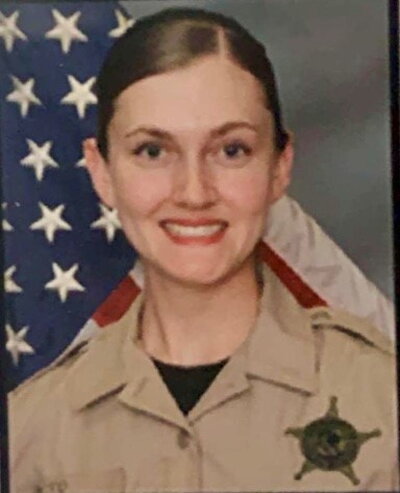
What do you do on a typical day as a Conservation Police Officer?
Your day is always different, especially depending on the seasons. You do compliance checks, checking fishermen, hunters, boaters... You utilize different vehicles to do enforcement and compliance checks. This may be your squad truck, a boat, an ATV or snowmobile. We do a lot of self-initiated activity, as well as responding to calls.
How did you get to where you are since you graduated from UIUC?
After graduating high school, I looked at the job requirements to be a Conservation Police Officer. I tailored my life decisions to be qualified. To be a CPO I took a written test, physical fitness tests, psychological tests, went through a thorough background investigation, then went to the Illinois State Police Academy to be an officer, then a second academy to become a CPO.
What is your favorite thing about your job?
I truly enjoy that every day is different, as well as being outside so much. I get to help everything from plants, to animals, to humans. It is a great feeling to know that we are doing our most to ensure future generations get to enjoy the natural resources.
What was your favorite thing about the ESES major?
There is a wide variety of classes and subjects. I always felt I was gaining valuable knowledge daily. All of the professors were very enthusiastic about what they taught, it made you want to pay attention even more.
What advice do you have for current/prospective ESES majors?
There are more opportunities out there than you think. This is a very important major; learn as much as you can to go out and do the most good.
Nidhi Shastri, AIR New Voices Scholar 2021 | Business Analyst at Axiom Law | Science Researcher - Underknown | Creator - Model Minority
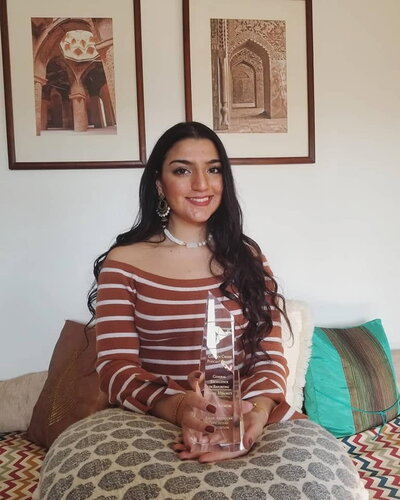
What do you do on a typical day at Axiom as well as with your podcasts, writing, and research?
During the day, I work full-time in the legal industry on business development for a company called Axiom. This involves a lot of communications – cold calling, brainstorming outreach to diverse legal teams, and handling marketing inbound leads for the company.
In the evenings/on weekends, I work on my various freelance jobs in the media industry. As an independent podcaster, I research and produce episodes of my personal podcast (Model Minority: Uniquely American) and script write/clip audio for MIT’s Chalk Radio Podcast. I also do research for online science videos called What If. Recently, I’ve joined the Association of Independents in Radio as a 2021 New Voices Scholar, which is helping me find more opportunities in the media industry.
How did you get to where you are since you graduated from UIUC?
I knew in the final months of my senior year (Spring 2019) that I wanted to pursue podcasting, but there wasn’t a very clear path. I spent the first year post-graduation doing odd jobs and applying to podcasting programs. I also spent a lot of time connecting with audio producers at places like NPR and WNYC by emailing those who inspire me. Another thing that helped me a lot was that I created my own podcast independently, which allowed me to create a portfolio of my work.
I’ve hopped around a lot in my career so far - I’ve worked as an activist and organizer for a healthcare non-profit during the pandemic, for the State of Illinois and City of Chicago government, in corporate America, and as a freelancer. For me, balance is key to sustaining myself financially and creatively in my career.
What is your favorite thing about your job?
In my view, podcasting is about sharing the stories and perspectives that are underrepresented in society. The beauty of the field is that you can meld just about any social issue (including environmental ones!) with this medium to create something life-changing for all involved - that's probably what I love most about it.
What was your favorite thing about the ESES major?
I love how versatile the ESES major is. Some of my podcasting skills are tips I picked up in environmental communications classes with Dr. Kanter - and they’re things I still use in my work today.
What advice do you have for current/prospective ESES majors?
It’s okay if you don’t have it all figured out now. In my perspective, you don’t need the biggest internship or the most flawless grades to do impactful work in your career (although having those probably doesn’t hurt!). The best thing you can do is to really ask yourself what your passion is, and be unafraid to experiment while trying to follow it.
Jia Wang PhD student, Geology, University of Illinois ESES Class of 2017 Double major in Geology
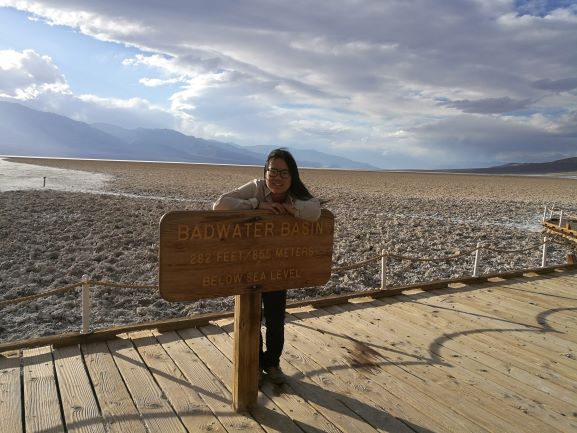
How did you choose to continue post-undergrad in geology? Are you doing any research currently?
I am currently working on my PhD in Geology with my focus on shallow subsurface aqueous geochemistry in the Critical Zone. The Critical Zone is the section of the earth from the top of tree canopy to the depth of the groundwater table. My research focuses on how geochemical cycling occurs within this section of the earth which is a crucial resource to many life and ecosystems in our society.
What do you want to do when you graduate?
That’s a good question! I am still exploring all the possible career path in this field but some of the options I am considering at the moment is to continue in academia or environmental consulting.
Did the ESE major help prepare you for graduate school?
Yes, the ESE major allowed for me to explore different aspects of environmental problems that led me to consider earth processes crucial to life sustaining ecosystems.
What was your favorite thing about being an ESE major?
I loved the flexibility within the ESE major. I was able to pick classes that were really interesting to me at the time and the major was very accommodating.
Do you have any advice for students who want to go to graduate school with ESE as an undergraduate degree?
I would say that the ESE major is great for building a platform for you to explore your interests. However, don’t be afraid to take upper-level classes in the field of your interest, even if they’re not part of the curriculum listed for ESE. This will help further narrow your field of study for graduate-level work.
Edmund Fitzgerald, GIS Analyst for Kimley-Horn in Chicago
What do you do on a normal day as a GIS Analyst?
I work for Kimley-Horn which is an engineering/consulting company. I use GIS and drafting software to identify sites that would be ideal for solar farms. Then I work with developers to create topographic models and design the solar farms.
How did you get to where you are since you graduated from UIUC?
I got in touch with a recruiting firm and they got me in front of some companies. Eventually I got a job drafting at an engineering firm and got a lot of experience there, and then I moved to a new firm where I got to design solar farms.
What is your favorite thing about your job?
The problem-solving. I really like going into work knowing that there is going to be a new problem to solve and work on. It’s very engaging and changes up what you need to learn how to do and forces you to understand other perspectives.
What was your favorite thing about the ESES major?
It is very well rounded so I think I had a big advantage going into the working world because of the foundation of knowledge that I got from ESES. It is really helpful to have a working knowledge about variety of areas in the environmental field.
What advice do you have for current/prospective ESES majors?
Always try to learn something from your experiences. Companies/employers don’t expect you to know anything coming out of school, they want someone who is going to be receptive and able to grow. Sometimes I feel that people think they are done learning when they graduate, but that couldn’t be further from the truth. Always try to learn something new.
Joanna Pupa, Lab Technician 2 at the Metropolitan Water Reclamation District of Greater Chicago, Class of 2017, Double major in Chemistry and ESES
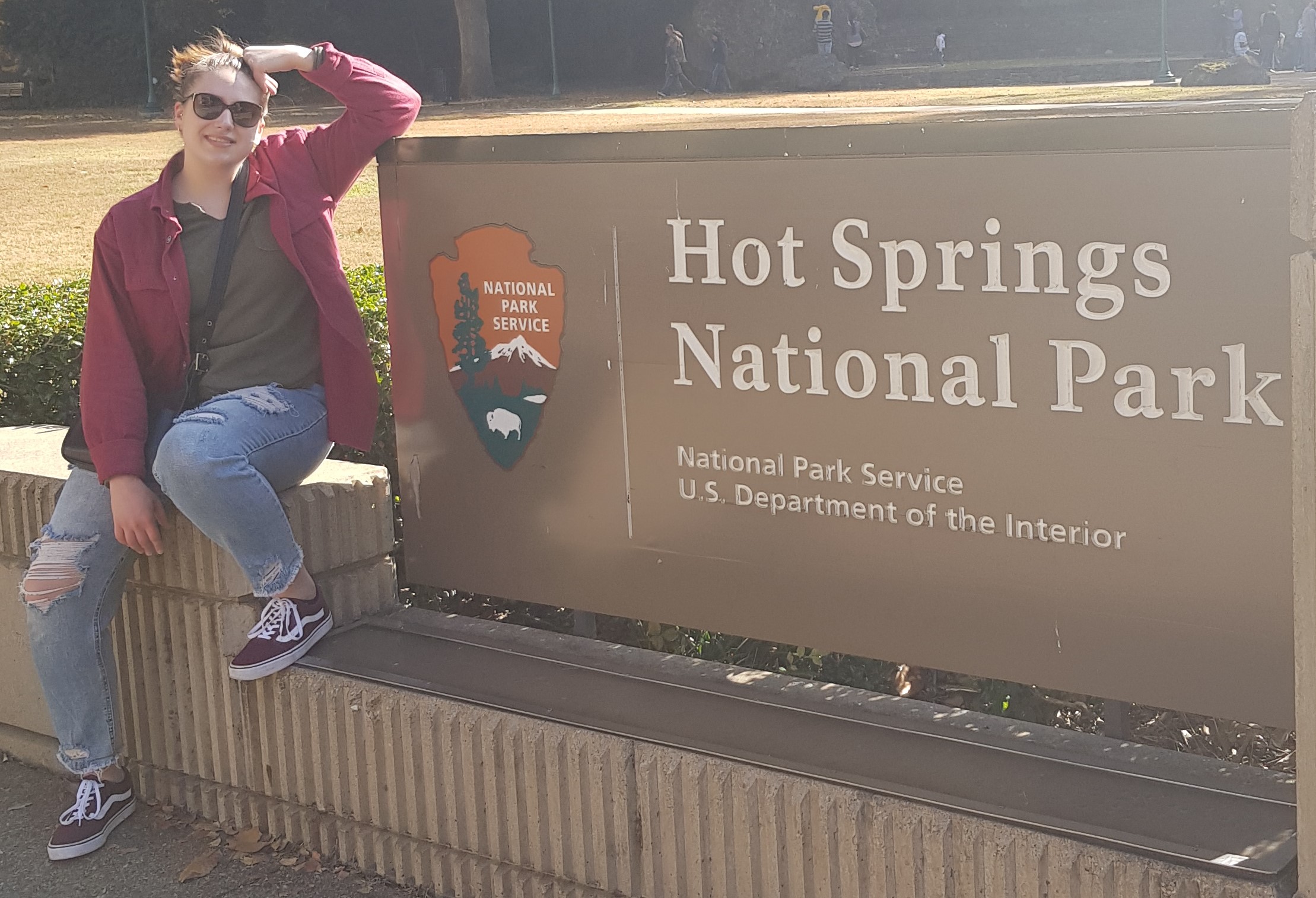
What is your current job title and what do you do on a normal day?
My current title is Lab Technician 2. There are quite a few tests that we run in the laboratories and we tend to switch every week. Some of our analyses are calculating suspended solids within samples, calculating total solids within samples, pH, alkalinity of samples, biological oxygen demand of samples, total nitrates, total phosphates within samples, etc. Every day we receive samples collected at various plants of the Greater Chicago area, then we test them according to their requested analyses. We then create a lab report and our results are sent to the EPA to make sure that the plants are running smoothly and meeting set discharge limits.
What do you like about it?
I really like my current position because I'm using both of my degrees every day. I come to work to do my laboratory work, and the goal is to make sure that clean water is released back into the environment. I feel the impact of my job every day.
By what path did you get to your current job?
A few years ago I interned at the District. Unfortunately, there's a huge wait to get employed. I had to wait a year and a half in another laboratory position in order to gain experience. Once the position opened, I had to pass a chemistry test in order to get interviewed. I passed the test and got my interview and the rest is history.
What was your favorite thing about the ESE major?
My favourite thing is how varied the major is. My experience in ESE is different from every other person's. I focused on chemistry and the science of the natural world, while also dabbling in environmental writing and GIS. The ESE major shaped me into a critical thinker and a problem solver which is helping me immensely in my professional life.
Do you have any advice for ESES students as they explore career options?
My main advice is to not give up. I had to take a few stepping stones to get to where I currently am and that's ok. It was discouraging at times and I felt like I was stuck, but my persistence and hard work is paying off. Another good piece of advice that everyone gives is to get an internship. It makes it so much easier to step into a career if you can experience just a taste of a full time job for a couple months, instead of being pushed into one for the next 45 years of your life. It's obvious advice, but very important. Even if it's just one internship for one summer, it can make a world of difference.
Jane Eagleton, Administrative Assistant at Great Lakes and St. Lawrence Cities Initiative Class of 2017 Double major in ESES and French

What is your current job title and how did you find the job?
I am currently the Administrative Assistant at the (wait for it, it’s a long name) Great Lakes and St. Lawrence Cities Initiative. I was referred to this job by my previous internship at the Alliance Francaise de Chicago.
What do you do on a daily basis?
At my position, I am in charge of communications, event planning, overall organizational operations and administrative duties. I work with mayors and elected municipal leaders in the US and CA, across the Great Lakes and the St. Lawrence River, to protect the Great Lakes, the St. Lawrence River, and the English- and French-speaking communities that surround them. I was hired due to my ability to speak French and my background in environmental studies.
What was your favorite thing about majoring in ESE?
My favorite thing about majoring in ESE was learning how to be marketable in many fields plus learning how to write, create and be a creative problem solver. The ESE major not only taught me about the natural world and how humans interact with it but also how to tackle large, seemingly overwhelming environmental issues, one problem at a time.
Do you have any advice for students who want to work for non-profits or conservation work?
My advice to students going into the non-profit world is to learn how to use your strengths to your advantage. The non-profit and conservation fields are wide and varied but be confident in what you know how to do and what you like to do and be creative. ESE gives you a great foundation for a non-profit job, but it’s up to you to jump in and make it yours!
More information about the Great Lakes and St. Lawrence Cities Initiative
Don McKendry MS Student, University of Iowa Graduated: Spring 2017, Major: Earth, Society, and Environmental Sustainability Concentration: Earth Science, Minor: Atmospheric Science
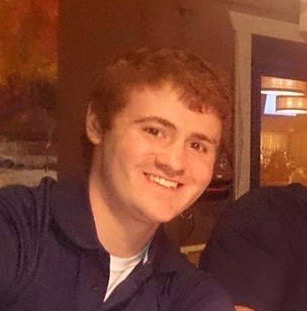
Could you give a brief description of your grad program and what you're focusing on?
MS Degree: Civil/Environmental Engineering
Focus: Environmental Engineering
Graduation Date: May 2019 (This upcoming spring)
This MS program offers advanced knowledge of chemistry & microbiology, biological & physical-chemical treatment processes, data analysis, technical communication, and a modern understanding of complex environmental systems. I’m focused on water quality engineering, water resource design/management, alternative energy systems, and global sustainability projects.
How did you decide on this program/engineering in general? Did anything about your undergrad prepare you for graduate work?
Working as an Undergraduate Researcher in the Conroy Lab at Illinois prepared me for grad school (Dr. Jessica Conroy, Geology Department). After working with Dr. Conroy and her PhD. students, I decided to pursue a graduate degree in Environmental Engineering.
What was your favorite thing about ESE?
My favorite thing about ESES was the program's flexibility.
Do you have plans post-graduation? If so, what are they?
Currently considering opportunities as a water quality/environmental engineer with various engineering firms throughout the country. I’m also interested in global projects focused on water quality and alternative energy systems.
Any advice for students who want to follow in your path?
For students considering a graduate degree in engineering/geoscience, choose your electives wisely and constantly challenge yourself. Advanced coursework in chemistry, physics, and mathematics will help you develop the skills needed to succeed in these areas.
Also, strive to be an active member of your undergraduate/graduate program. Student research, academic clubs, internships, and networking with faculty/students will aid in professional growth.
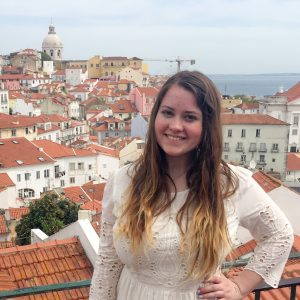
How did you decide to go to law school? Is it something you always wanted to do?
I did not know I wanted to go to law school until after my first year of college. Over that first summer, I interned at my local Environmental Services Department in Texas and learned a lot about how environmental laws impacted policy at the local level. That first year I also learned a lot about environmental justice movements and creative ways environmental lawyers could use the law to improve communities and promote equality.
What do you want to do with your JD?
Honestly, I am still working to figure that out! With my background in environmental studies, of course I am very interested in environmental law. However, I am also just generally passionate about making the world a better place- whether that be physically in the environment or in more social spheres. I am looking forward to gaining more experience with different areas of the law and types of practice through internships and externships so that I might have a better answer to this question soon.
Do you think ESE helped prepare you for law school?
ESE was a wonderful pre-law major for me! I really benefitted from the flexibility of the major in a couple different ways. I was able to graduate a year early in the ESE major which meant I will only end up paying for six years of school rather than seven. I was also able to take a lot of interesting courses in a wide variety of disciplines. I took a lot of writing heavy courses, particularly with my concentration in Society and Environment, and this was good preparation for writing in law school. ESE also taught me a lot about how to craft arguments for environmental issues and this translates well to crafting arguments in general.
What was your favorite thing about ESE?
My favorite part of the ESE major was the flexibility. I was able to explore issues I was interested in– including the law, but also environmental health and environmental justice issues. I really liked that I was able to take courses in a diverse variety of disciplines. I graduated with some background in how GIS works and mineral identification, but also cultural shifts worldwide in reaction to climate changes and best practices for teaching children about nature. This ability to integrate different kinds of thinking has been really helpful in law school and really allowed me to explore as a curious learner.
Do you have any advice for students who want to go to law school from ESE?
I really recommend joining pre-law organizations and taking full advantage of the pre-law advising services. The one disadvantage to having a more unique pre-law major is that you may not meet many other pre-law students or have specific pre-law programming within ESE. The pre-law advising service puts on really great programming and can help you with the specifics of achieving your goals for law school. I would also recommend taking full advantage of the flexibility of an ESE major. There are so many law-related courses offered at U of I that you can totally take advantage of. You should also challenge yourself to take upper-level courses that interest you. Starting to work at that higher, graduate level really helped me prepare for the academic challenges of law school and got me thinking about higher-level issues and practicing writing skills.
Reginald (Reggie) Jones, Graduated: 2015 (Summer), Concentration: Science of the Earth System Minor: Chemistry
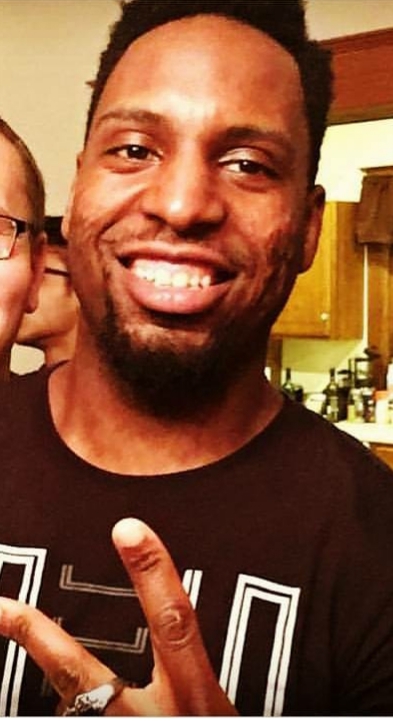
What is your current job title and daily duties?
My current job title is Analytical Chemist II, and my daily duties include the analysis of natural gas through gas chromatography and mass spectrometry, which allows fingerprinting of gases for oil and gas exploration, reservoir characterization, and production allocation, as well as identification of storage gas, pipeline leaks, and bacterial methane.
How did you come about getting your job?
I honestly can't remember, but I know I did a bunch of Google searches for chemistry jobs in Champaign! I want to say I found this opening on Indeed where I was directed to the application to apply. Side note: it took 2 years of side jobs before I landed my current job, and it's been 1.5 years with the company. It is also cool that I can represent diversity in my company, as I am the only African American currently there.
What was your favorite thing about the ESE major?
Besides Dr. Kanter being my professor, I really enjoyed the various in-class conversations and hands-on experiments performed. I truly enjoyed the class trips, especially to Dixon Springs, in which I would encourage all students to go at least once!
Do you have any advice for students?
My advice to current students is to keep striving in whatever it may be that you have a passion for. There will be roadblocks and situations that cause you to either adjust or divert completely, but if you stay rooted, eventually, there'll be another road that leads back to your goals. It'll come over time with many trials and tribulations, so don't stress and enjoy what you're doing! Right now is the best time to work on those goals.
More information on Isotech Labs can be found.
Allison Bate: Resource Education AmeriCorps Member Great Smoky National Park Graduated: 2018 Concentration: Science of the Earth System Minor: Geography & GIS
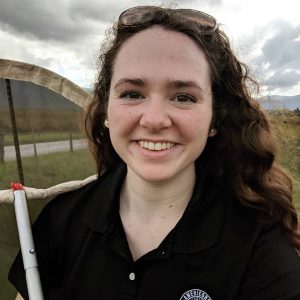
What do you do on a day-to-day basis?
My day-to-day changes on a seasonal basis. However, to sum it up, I teach and develop field trip and classroom programs. In addition to that, I am helping to create several multimedia projects focusing on safety and conservation within the national park.
What was your favorite thing about being an ESE major?
My favorite thing about ESE major is the versatility it allows. I transferred into the major late and was able to take both science and communication classes, increasing my interest in connecting the two fields.
What was your pathway to finding this job?
I spent two months after graduating refreshing a few different job boards twice a day. Suddenly, this opportunity popped up! Because I was looking in the environmental field, I looked mainly at environmental job boards. However, AmeriCorps members serve all over the US, and there are plenty of opportunities to get all kinds of experience through serving.
Once I discovered which AmeriCorps position I was applying for, I went to their online application, filled it out, and submitted it. It was straightforward, and I was quickly contacted by my future supervisor.
What’s your favorite thing about serving in AmeriCorps?
One of the great things about serving as an AmeriCorps member it that you qualify for an education award after completing your term. This award can be used toward student loans or future tuition costs.
Allison has her sights set on graduate school in the next few years, using the education award to get her Master's in Education. She plans on pursuing environmental and conservation education.
Interested in learning more about becoming an AmeriCorps member?
You can follow Allison’s AmeriCorps adventures on instagram: @allyoftheparks
Krisos Spyratos, Campbell University School of Osteopathic Medicine, Class of 2020 ESES Class of 2015 Concentration: Society and the Environment, Double major in Molecular and Cellular Biology (MCB)
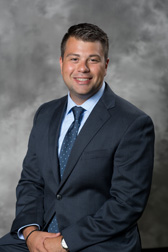
How did you choose medicine? Is it something you’ve always wanted to do?
My itch to go into medicine really started when I was in high school, but I also had a fantastic high school teacher who got me very interested in environmental sciences and sustainability. I’ve always been one who enjoyed whatever I studied so I decided to look around at different career paths when I went to college. I took a swing at straight policy courses as well as economics courses, and though I found them interesting they never really called to me as a career. I made my final decision to pursue medicine after I realized I missed the hard sciences along with volunteering and shadowing at the local community hospitals in Champaign. I decided to dual major in MCB and ESE, nevertheless, because I thought the ESE degree was a great balance between my other interests of environmental sustainability, policy making and also incorporated a lot of issues that are very relevant to the healthcare field.
What was your favorite part of the ESE major?
My favorite part of my ESE degree was the flexibility it provided me to explore my other interests outside of medicine and also provide me with the ability to balance the course load of MCB with another major. The fantastic professors were also a pretty great perk of being an ESE student!
Did ESE help you prepare for medical school at all in terms of skills learned and knowledge base?
Would I say that ESE provided me with “knowledge base” to prepare me for medical school? No. What I would say though, which I find more important, is that it challenged me to look at issues through different perspectives and try to find solutions in a way that may not be obvious from face value. Many pre-med students do not realize that medicine is not all about science. You’ll quickly realize once in medical school that 75% of medicine is about interacting with people and trying to understand their life, issues, viewpoints, etc. and by being as well rounded in your education as possible, will only make that part of medicine easier to grasp.
Do you have any advice for students who may want to follow in the same path as you and do an undergrad in something besides a "typical" pre-med major?
My advice would be to do what you love. You do NOT have to follow the typical mold of a “Pre-med” student. Take courses you find interesting and intellectually stimulating because at the end of the day, once you leave college and start medical school, you’ll be eating, breathing, and sleeping medicine; why not explore your other interests while you still have time? Truthfully, in my opinion, it also helps with medical school admissions. Everyone is taking science courses for medical school, but do you have other interests and stories that you can talk about at interviews? I would say a good 90% of my medical school interviews revolved around my hobbies and decision to pursue other classes outside of MCB.
What do you want to do when you get out of medical school?
After I complete medical school I’m hoping to complete a residency in Emergency Medicine (EM). I love a little bit of adrenaline in my life, and I find the work that EM physicians do to be well-rounded, from pure primary care work to psychiatry, OB/GYN, etc. I find it very rewarding to be one of the first providers a patient sees during one of their greatest times of need. I plan on working in EM after residency, and eventually, I would love to find myself doing health policy work further along in my career.
Emily Dombrowski, Environmental Education Program Manager (Kendall County Forest District), Class of 2015 Concentration: Society and the Environment, Minor: Communication
How exactly did you find your job?
I worked for the Kendall County Forest Preserve District while in high school and college during the summer as a camp counselor and Environmental Educator. After graduation, I became the Environmental Education Coordinator, and in December of 2017 was promoted to the Environmental Education Program Manager for the forest preserve district.
Can you briefly describe what you do on a day-to-day basis?
It is hard to describe what I do day to day because every day is different. Some days I am out in the field leading school, camp, or public programs, other days I am in the office creating curriculum and coordinating programs. I work for a small agency, so I also get to present at board meetings, help lead restoration workdays, and attend various community events.
What was your favorite thing about the ESE major?
I loved the variety of the classes that I got to take. I also really enjoyed travelling to Costa Rica. I have so many amazing memories from that trip.
What’s the best thing about your job?
I love all of the families, students, and teachers that I get to work with! It is very rewarding to see people engaged and excited about the environment.
Do you have any advice for students who want to do what you do with their ESE degree?
Definitely start getting experience as early as possible. Volunteer or work during the summer as an Environmental Educator or Camp Counselor. All the classes that you take in college are important, but getting the real life experience out in the field is crucial. If anyone lives near Kendall County and is interested in a job/internship they can feel free to reach out to me- edombrowski@co.kendall.il.us.
Nicole Hunt UX (User Experience) Researcher, Rally Health, ESES Class of 2013 Science of the Earth System Concentration, Double Major in Rhetoric: Creative Writing (poetry and prose concentrations)

What does your typical workday look like?
My job has changed a lot over the past couple of years, and many of my close colleagues know me as the "Swiss Army Knife" because I typically haven't been dedicated to one thing in particular. On any given day, my tasks include content strategy, copy writing, design research, and competitive intelligence. My main focus is on the research side of things, which is why my official title is UX Research. I work with the product teams and designers at my company to test their design and content hypotheses with real people, and then finesse them as needed. An example of this would be: say we're adding a new feature to one of our products. When you add a new feature to a website, suddenly you need to come up with 'real estate' on the site so that people can find and use that new feature, not to mention you need to create the feature itself. The team working on the new feature would come to me with designs, whether they're just sketches or 'high fidelity prototypes' and explain their questions and concerns to me -are people going to know to click the link that says "XYZ"? Is that the best way to phrase it so that the new feature is used? Is the feature surfacing the right information to the right people at the right time? Are the colors and illustrations appropriate and understandable? etc. From there, I create a study that gets sent out to people across the country. When I get the results back, I'm able to watch the person using the design / prototype as if it were a real website and see the answers to any survey or open-ended questions they were asked. From there, I use these results to make recommendations to the product team so that they can refine their designs before they become official on the live website.
How did you acquire your current job?
I got my job through a referral from my previous job, which was at a company affiliated with my current employer.
What was your favorite thing about the ESE major?
It's hard to pick just one thing, but I'll say how interdisciplinary it was. I loved the fact that in a given semester, I could take a class about journalism and another about biology, both of which satisfied various requirements in ESE (and various interests of mine as well!). It was a great way to be prepared for a job market that isn't as siloed as one might think and helped me become a "Swiss Army Knife" -which is something that has actually furthered my career more than almost anything else.
Do you have any advice for current or future students who want to follow a similar path as you?
I'd say that being multifaceted and thinking outside of the box when it comes to a job search/career path is very important. My formative jobs have included: legal assistant at an environmental firm, assistant to the president of an education company, business analyst at a health care company, content strategist, and now -UX Researcher. While these seem to have almost nothing to do with each other (and honestly, they kind of don't!) what ties them together is my interest in many topics and never saying "that's not my job". Those two qualities get my foot in the door. Then, strong written and spoken communication skills become an added bonus that get me noticed and funneled into roles that are genuinely exciting to me. Above all, the most important thing is to have an honest passion for the mission of the company you work at, and if you can see the alignment between what you do and furthering that mission, you've really hit the sweet spot.
Mallory Church, BS Earth, Society and Environmental Sustainability, Class of 2014
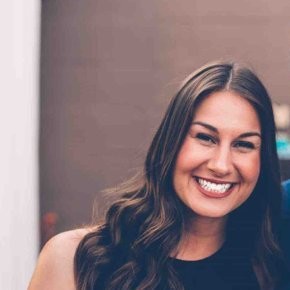
Could you summarize what you do on a day-to-day basis?
I work for a General Contractor in the operations department of our Commercial Interiors group. I act as a liaison between subcontractors and the architect, engineer or owners of a construction project. A lot of the day to day activities consist of maintaining accurate project documentation such as the project drawings, material samples or contracts and change orders. Other activities include reviewing project scope and assisting the team with the bidding, buyout and closeout process per trade.
What's your favorite thing about your job?
My favorite thing about my job is the culture of our company and the people I get to work with everyday. I also enjoy getting on the jobsite and witnessing a vision come to life for some pretty cool projects.
What was your favorite thing about ESE?
My favorite thing about ESE was how prevalent the topics we studied are in everyday life. A lot of the concepts can be applied to many different industries. In my case, it led me to the commercial real estate and construction industry where we look for ways to be lean and efficient in not only the way we build our projects but also in our methodology and processes.
If students are interested in Skender, they can look at their careers page, online platforms like LinkedIn or Indeed, etc. They also attend Career Fairs every year.
Chloe Belczak, UIC Masters of Public Administration, Government Finance Officers Association (GFOA) Graduation: December 2016 (with distinction because of ESE401) Concentration: Society and the Environment, Double major in Communication
How did you wind up at your current job?
Currently I am at the Government Finance Officers Association (GFOA), working in the research and consulting center as an intern, but am looking at full-time opportunities within the organization. I ended up in this position because of my MPA (Masters of Public Administration) program at UIC--where we used a lot of GFOA's resources in my budgeting course and as a result I ended up on their homepage and found they were hiring interns.
What do you do on a day to day basis?
What I do on a day to day basis varies, but in general it's a lot of data analysis and report writing.
What was your favorite thing about the ESE major?
I really loved the Environment and the Human Response courses, I found them to be really thought provoking and interesting. Dr. Kanter’s courses I think were also some of my favorite. I felt like his course left me with a portfolio that I could show other people. I am still so proud of the environmental almanac segment we did for the Multimedia Environmental Communication course --it was a fun project that forced you to do something different.
How did you choose your master’s degree field and did ESE prepare you for post-undergrad work?
I am pursuing my Masters in Public Administration with a concentration in Nonprofit Management. I am set to graduate on December 15 if all goes according to plan.I wanted to get my MPA because my dream job would be working for an environmental nonprofit organization advocating for sustainable environmental policy. But in order to enact change, I felt that I needed to have a better grasp on local government's role in enacting policy and leadership in the public and nonprofit sectors. My ESE degree in a lot of ways inspired me to pursue my master's, because my ESE Capstone was based on my time working for a Chicago-based environmental nonprofit. I realized that I loved that atmosphere and wanted to become more involved with the leadership in a similar organization.
Do you have any advice for students who want to pursue a line of work like yours?
If you are at all interested in environmental policy or working for policymakers, an MPA degree can be a step in the right direction. Many MPA programs provide opportunities to study both policy and the environment together. And an MPA can open many doors outside of policy, local government, can have major impacts on how a community views their environment. Park districts and parks departments hire people who have a passion for the betterment of public lands and need people who understand the needs of residents. My job at GFOA, although it is not directly related to environmental policy work, has given me a better perspective on the impact budgeting can have on enacting positive environmental change. Local government entities that believe in climate change can drive local change, and understanding how to finance those processes is part of that change.
Sheila O’Connor: Implementation Manager at Goby, Class of 2014, Science of the Earth System concentration
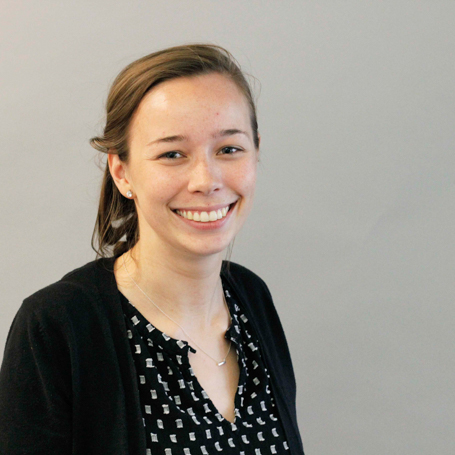
What does your daily work life look like?
My day to day today involves working both internally and externally to coordinate the setup of our clients in the Goby platform. Internally that can mean talking to the product team to create a new feature, working with the consulting team to setup a new LEED or GRESB project, coordinating with the delivery team to see how much data we have or still need, or maybe just talking to the sales team to clarify contract terms. Externally, I might be working with executive teams, engineering departments or sustainability teams at real estate companies across the world. We also work with third party contractors, who I am responsible for coordinating with as well. There’s a lot of variety in every day.
How did you come about getting your job?
I got connected to Goby through a friend who already worked here. I was working at the City of Evanston (both in their sustainability department and their water department) and my background in math and data from my research projects with the Biomathematics group really lent itself to starting at Goby as a Data Analyst. Since starting here, many UIUC grads have been hired, and we now have Illini in every department at Goby. Our CRO, Helee Hillman Lev, is also an alum, and graduated with a degree in architecture before joining the real estate world (and shortly after joining Forbes' 30 under 30).
What was the best thing about the ESE major to you?
ESE is multi-disciplinary. If you look at my transcript, the amount of departments I was able to take classes is upwards of 10. Plants and Their Uses (ANTH 378), Spatial Analysis (GEOG 371) and my work with the IB/Math research group, specifically under Professor Zoi Rapti in the Math department during my senior year, were some of my favorite courses over my years --and I think emblematic of the diversity of coursework available to ESE majors.
What’s your favorite thing about your job?
The no-ego approach to problem solving. If there is a problem, everyone from the C-suite to the analysts are ready to jump on the problem, and are also given the air-time to play a role regardless of seniority, background, gender, etc. My CEO loves a TED talk by Ray Dalio called How to build a company where the best ideas win, and we don't take it that far, but that is the sort of approach we have at Goby.
Do you have any advice for students who want to follow in your path?
Have dynamic experiences. As you leave college, most likely you cannot say you have 2 years of work experience that it feels like every job asks for. However, you can do things that give you that kind of experience without starting on the "traditional" path. When I first graduated, I worked as an intern at the City of Evanston, where I worked both at City Hall in the sustainability department, and at the water plant in the utilities department. In the afternoons, I was a nanny for 3 hilarious young girls. I made enough for groceries and to pay the rent in my Lakeview apartment, and was getting unbelievable skills from each of those 3 places. From City Hall, I got experience with cross-departmental collaboration, working with the law department, the engineering department, the mayor's office, the health department amongst others, as we rolled out the pilot of Divvy Bikes in Evanston, and submitted the city for national walkability awards. From the water plant, I got to work in the city's GIS database, as well as document the cities' soil boring reports from decades of binders, in order to produce reports on guidance for new rain gardens and permeable pavements throughout the city. As a nanny, I got to learn how to manage personalities, and also maintain a schedule of a hundred things going on at once, that all had equal importance. Each of those 3 places taught me things that made (and make) me a valuable member of the Goby team.
Elizabeth Cole: Roving Zookeeper at Lincoln Park Zoo, Class of 2015: Society and the Environment Concentration
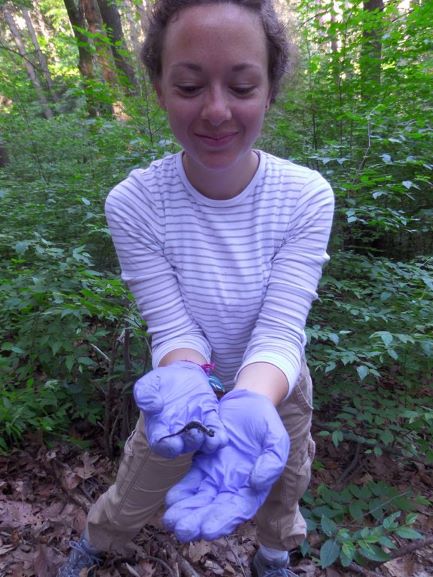
Can you briefly explain what you do on a daily basis?
I provide daily care for over 60 species of exotic and domestic animals, and I work with everything from endangered Eastern Black Rhinos to hissing Madagascar cockroaches. Care includes feeding, training, cleaning, enclosure maintenance, and behavioral observations. I also give keeper chats and private behind-the-scenes tours, during which I teach the public about animals and conservation issues.
How did you wind up in your job?
I knew that I wanted to be a zookeeper when I was a junior in high school, and since keeper jobs are very competitive, I started volunteering for Brookfield Zoo’s Youth Volunteer Corp in high school. From there, I did a zookeeping internship in their Hamill Family Play Zoo department, which led to a seasonal zookeeping position the following summer. After I graduated from college, there just happened to be an apprentice zookeeping position open at Lincoln Park Zoo (similar to an internship, but paid and 15 months long), which, thanks to my volunteer and internship experiences, I was qualified for. I wound up getting that, and then got promoted to a full-time roving zookeeper when my apprenticeship was over.
What's your favorite thing about working as a roving zookeeper?
I love talking to zoo guests about animals and conservation. It’s very rewarding when they learn something new and then change their behavior to help save their favorite animal (like buying palm oil-free products or stopping the use of single-use plastics).
What was your favorite thing about the ESE major?
I love the flexibility of the ESE major. When I transferred in during my junior year of college, I had 60 credits to do whatever I wanted with—and I did! I got to take all kinds of writing, multimedia, and hard science classes, like ecology and ornithology. I really got to shape my degree to be exactly what I wanted, and because of that, I feel like I have the skills needed for my own career goals. I also liked how most of the classes (especially Dr. Kanter’s) were very interactive and applicable to the “real world”.
Elizabeth has some great advice for ESE majors looking to be a zookeeper:
“I always try to emphasize that zoo keeping is first and foremost an animal care job. Meaning, it is very labor-intensive and physical, at times smelly, and you will get dirty—likely with grime from the animal you’re caring for. I always suggest talking to keepers (we’re friendly!) before you actually decide to go into the field because it is very competitive and generally pays very little for non-full-time staff (and it can take 10+ years to get a good-paying, full-time job). Once you know you’d like to be a keeper, start volunteering or working in any animal- or education-related jobs you can. Seek out internships and apprenticeships, and don’t be afraid to move around the country for them. If you’re in school, learn as much as you can about animal behavior, ecology, and specific animal sciences (like mammalogy or ornithology). You also need really good interpersonal communication skills and writing skills, so if there are any classes in those that you can take, take them!”
To find career openings in the zookeeping field, a great resource is the AZA job board (aza.org), which posts a wide range of zoo jobs from across the country. If you have a specific zoo in mind, most zoos have their own career section on their website that you can explore.
Jane Sullivan: CUMTD Grants and Sustainability Manager, ESE Class of 2012 Science of the Earth System Concentration, MBA University of Illinois 2015
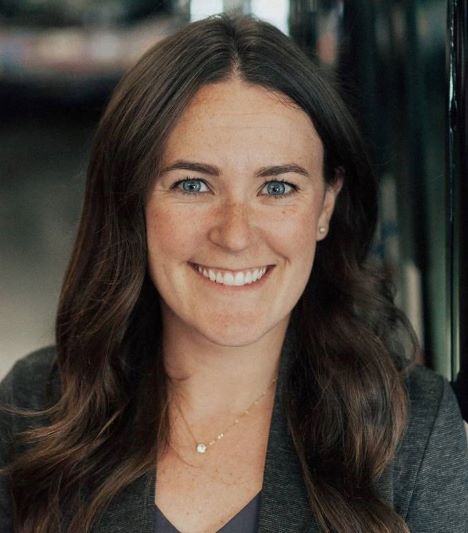
How did you get your job?
I completed an internship during the second semester of my Senior year of college with the Champaign-Urbana Mass Transit District (MTD) and then began working there full-time shortly after graduation.
What does a day in the life look like for you?
I manage MTD’s grant funding and environmental sustainability efforts. For the grant-funding side of my job, I apply for funding and then manage the projects once funding is received. On the environmental sustainability side of my job, I manage MTD’s ISO 14001-certified Environmental Management System, which encompasses all our efforts to reduce our environmental impact.
Are you satisfied with your job? If yes, why?
I enjoy my job as Grants & Sustainability Manager because I am constantly learning. Public transportation is a fascinating industry full of innovation. Public transportation is inherently good for the environment because it takes single-occupancy vehicles off the road, but agencies like MTD have really gone beyond that... introducing low-and no-emission buses into our fleet, investing in renewable energy, participating in complete street projects such as MCORE.
What was your favorite thing about being an ESE major?
As an ESE Major, I was able to develop a strong foundation of environmental sustainability knowledge. I had many great classes to choose from and was able to build my own program, to an extent. I also participated in the first Field Expedition Course to Costa Rica, which was a memorable experience.
Ellie Althoff: Education and Outreach Coordinator, Hawks Aloft Inc., Graduation: August 2016, ESES: Society and the Environment concentration, Double major in Communication with concentrations in Interpersonal and Organizational Communication
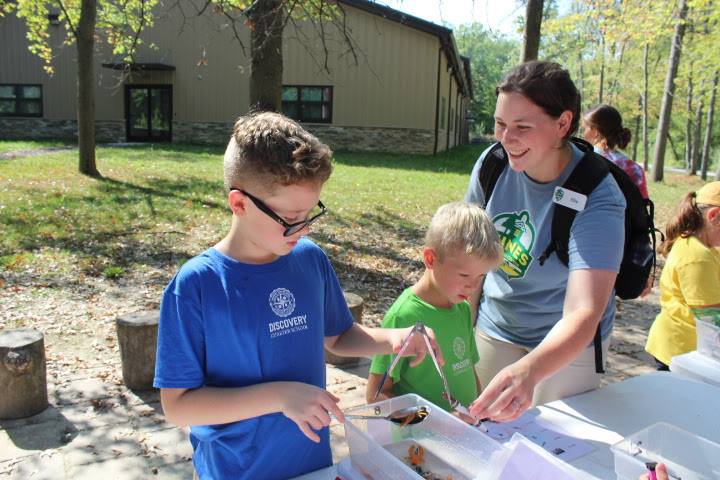
How did you find your current job, and why New Mexico?
I found my current job on the North American Association for Environmental Education's job board. I chose New Mexico because I wanted to explore different parts of the country. I grew up in the Midwest and had already lived on the East Coast, so it seemed natural to travel to the Southwest. I am currently the Education and Outreach Coordinator at Hawks Aloft Inc., a non-profit.
What do you do on a daily basis?
I spend 80% of my time in classrooms conducting environmental education programs with live raptors (e.g. hawks, owls, falcons) with topics ranging from migration, fire ecology, all the way to habitat fragmentation and watershed ecology. The other 20% of my time is spent coordinating program logistics, communicating with parents/teachers, attending various outreach events, and supervising volunteers.
What was your favorite thing about majoring in ESE?
My favorite thing about majoring in ESE was the variety. I was able to take courses in geology, biology, ecology, and many other fields that gave me a very well-rounded perspective.
Do you have any advice or resources for students who want to follow a similar path as you (education, working with animals)?
My advice to those who are interested in environmental education would be to start now. Volunteer with a non-profit specializing in education, start tutoring in a subject your love, or apply for a summer internship at a nature center. It was my internship at Possumwood Acres Wildlife Sanctuary that taught me the animal care and programming skills needed to obtain and be successful in my current position.